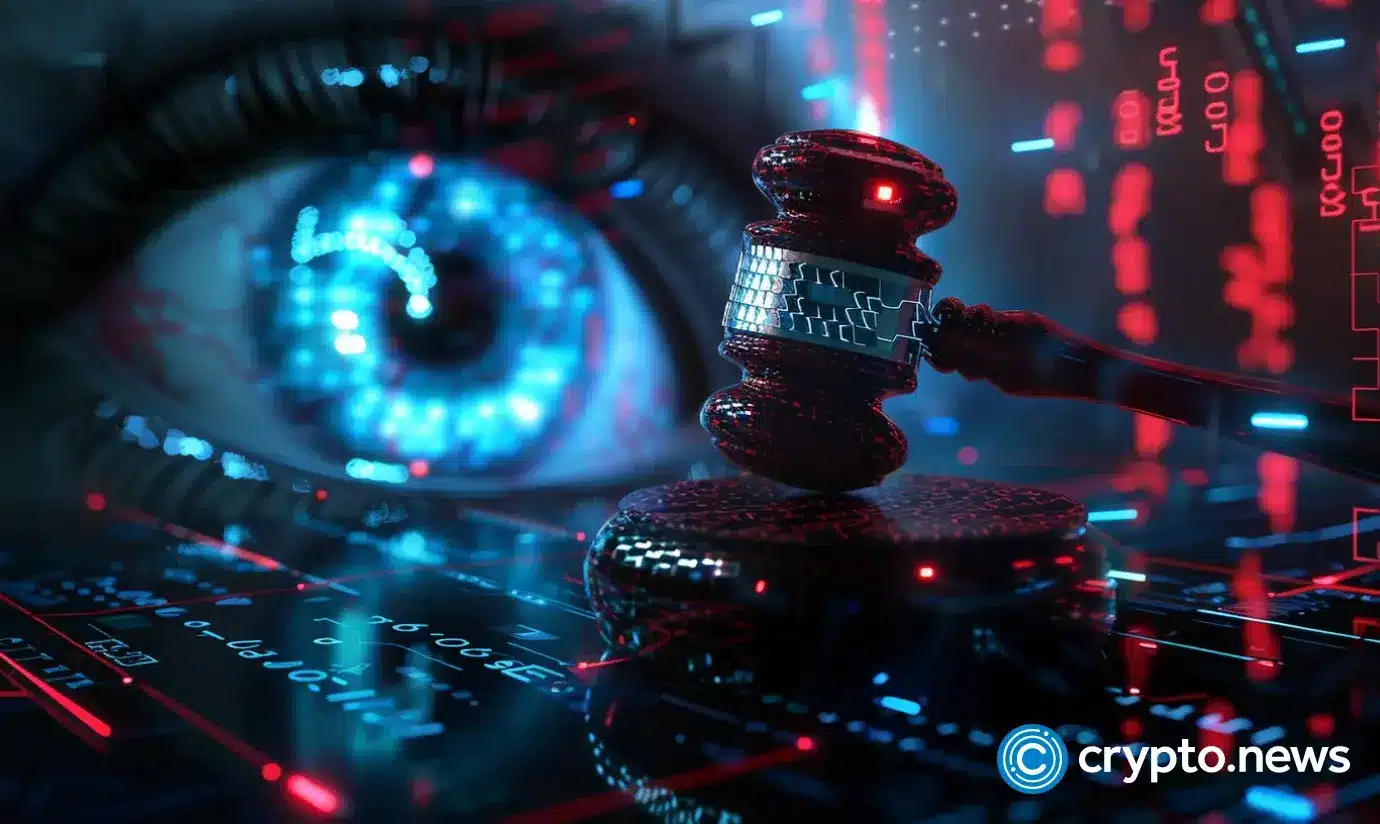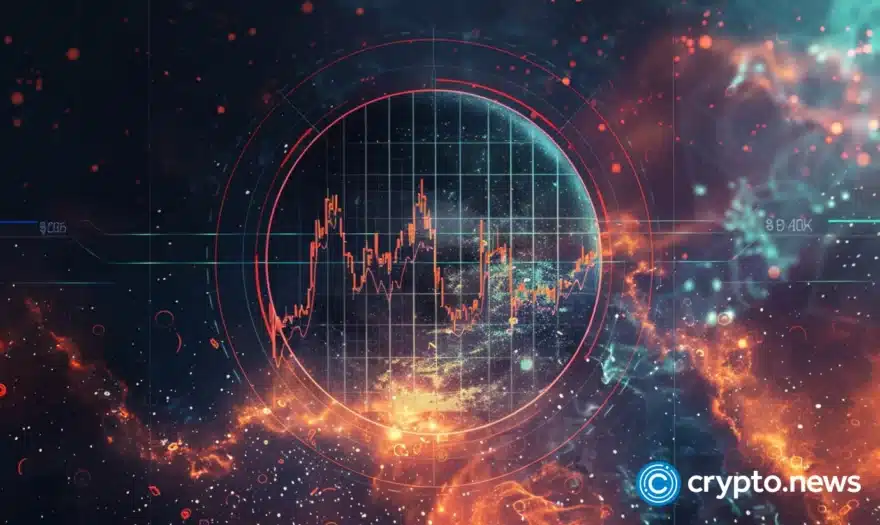Exclusive: navigating regulatory hurdles in the asset tokenization market

In an exclusive interview with crypto.news, Bing Wang, Head of Legal at BasedVC, delved into the complexities of real-world asset (RWA) tokenization and the regulatory challenges that hinder its mass adoption.
Real-world asset tokenization holds immense promise. It allows for the digitization of tangible assets like real estate, art, and commodities and has revolutionized how these assets are traded and owned.
As of April, Messari Crypto research firm Messari reported the total value locked in the RWA market was close to $8 billion. Per an IBM report, the sector is expected to be valued at $24 trillion by 2027, indicative of notable interest from financial institutions eager to capitalize on the benefits of blockchain technology.
In reality, however, the path to mass adoption is ridden with hindrances, specifically on the legal front.
The global nature of the market adds to the challenge. Different jurisdictions have varying regulations regarding securities, digital assets, and property rights, which complicates compliance for issuers and investors.
Wang believes that navigating these regulatory intricacies requires a robust strategy to ensure compliance with varying international standards.
What regulatory reforms do you think are needed to support the mainstream adoption of tokenized RWAs?
Confusing or no regulations can stunt the growth and adoption of RWAs, allowing bad actors to potentially thrive. It’s the function of the government to adopt clear-cut rules to help provide clarity, protect investors, and foster innovation in the sector. We think regulators must first clarify and define tokens. Too many confusing regulations concerning whether tokens are securities or commodities push potential investors out of the market, avoiding unnecessary enforcement and scrutiny. This will help define the regulatory requirements that apply to RWAs. Secondly, regulators should also spell out registration and licensing requirements for tokens and tokenization platforms. Participants will have clear guidelines on standards to be met alongside their regulatory obligations. Regulators may also establish sandboxes to help test innovations in the tokenization sector. This will allow regulators to assess the attendant risks before introducing sector-wide regulations. Regulatory reforms should also touch on establishing a dedicated mechanism for market surveillance and oversight to protect investors and enforce against bad actors.
With the diverse regulatory landscapes across jurisdictions, what strategies can tokenization platforms employ to comply with varying regulations across the globe?
Legal compliance with international standards when issuing tokenized RWAs requires an assessment of the various jurisdictional laws that apply to securities in specific countries. The most important strategy is to study and carry out a thorough analysis of registration, licensing, disclosure requirements, KYC for investors, and transaction reporting. Following this analysis, tokenization platforms can then streamline their offering to comply with the laws of each jurisdiction. This may include how the security is offered (by public offering or private placements) and what acceptable marketing methods can be utilized. Platforms should leverage technology solutions, like blockchain-based compliance tools, to automate their chosen compliance methods across different jurisdictions. Smart contracts will remove the human-intensive labor that lawyers will have to go through. Education is also important for ongoing compliance. Investors, team members, and advisors should be constantly updated on international securities laws, especially for jurisdictions where their operations extend. This will keep them updated on best practices and new trends in the RWAs tokenization sector.
Given the critical role of the U.S. market in the global financial ecosystem, how might the SEC’s “regulation by enforcement” approach impact the global competitiveness of its tokenized RWA market?
The US Market is pivotal in the global financial discourse. The approach taken over the last few years by the US Securities and Exchange Commission (SEC) has been considered abysmal by most analysts. Legal battles on multiple fronts tend to create negative sentiments around tokens and the platforms that help manage and list them. If regulators do not create a streamlined guide to regulating RWAs, it will force most platforms to relocate their platforms to crypto-friendly jurisdictions like South Korea, El-Salvador, United Arab Emirates. Regulation by enforcement also stunts investor confidence, leading to reduced investment inflows and slower growth in the market. A slower market means limitations to global competitiveness.
What should one look for when selecting a blockchain platform that aligns with legal and compliance requirements for tokenizing real-world assets?
Investors should always carry out personal research before adoption. However, investors should consider platforms that meet the jurisdictional requirements of the tokenization platform that they intend to use. This will help them assess if they meet KYC and AML requirements that help protect them. Some tokenization platforms have privacy features that help with the security of assets and data privacy. Investors should evaluate the platform’s track record regarding security breaches and its security protocols. Platform security is crucial to protect the integrity of tokenized assets and sensitive investor information. Investors may also consider the scalability and interoperability of the tokenization platform they choose to adopt. Support for other blockchains of traditional financial systems is important to facilitate seamless integration with external platforms and access to liquidity.
Lastly, how can tokenization platforms enhance transparency and trust among investors regarding the authenticity and backing of RWAs?
RWAs tokenization facilitates the presentation of blockchain-based digital tokens representing tangible physical assets (like real estate, art, commodities, and intellectual property. At the heart of RWA tokenization is transparency. Utilizing the decentralized and immutable nature of blockchain, tokenization platforms ensure that transactions are recorded and stored on the blockchain and visible to everyone on the network. This helps to boost trust among all participants. Tokenization platforms enable fractional ownership of assets, allowing multiple investors to own smaller portions of high-value assets. The distributed ledger at the core of the blockchain ensures that investors can see their ownership stake and rights accrued in the most transparent way possible. In addition, tokenization platforms can use cryptography to secure tokens, protect ownership, and reduce the incidence of fraud.
















